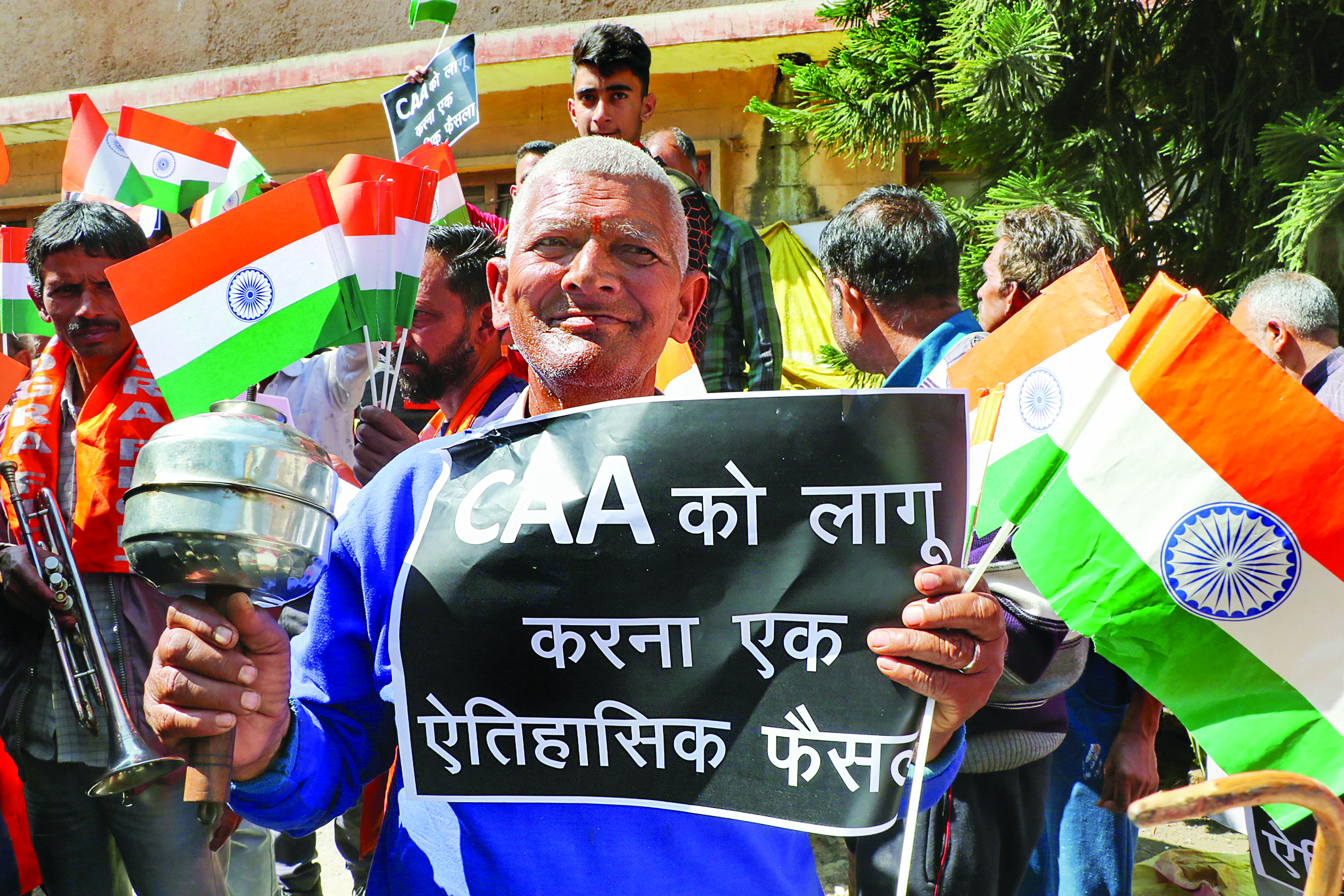Plea in SC seeks stay on implementation of CAA Rules, 2024

New Delhi: The Indian Union Muslim League (IUML) has filed an application in the Supreme Court, requesting a stay on the implementation of the Citizenship Amendment Rules, 2024.
The application was filed a day after the Centre implemented the Citizenship (Amendment) Act, 2019, by notifying the rules four years after the contentious law was passed by Parliament to fast-track citizenship for undocumented non-Muslim migrants from Pakistan, Bangladesh and Afghanistan who came to India before December 31, 2014.
The IUML sought to prevent coercive action against Muslims until the writ petitions are adjudicated. The application also urged the court to allow Muslims to apply for citizenship provisionally and submit a report on their eligibility.
The Democratic Youth Federation of India has also filed a separate application seeking a stay on the 2024 Rules.
The Supreme Court is currently reviewing several pleas challenging the Constitutional validity of the Citizenship (Amendment) Act (CAA).
The IUML application requested a stay on the operation of the CAA and the 2024 Rules, arguing that they grant citizenship based on religion, creating a fait accompli situation during the pendency of the writ petition. It highlighted that around 250 petitions challenging the CAA are pending before the court.
The application argued that if the CAA is deemed unconstitutional, those granted citizenship under the Act and rules would face an anomalous situation of potentially losing their citizenship. It suggested deferring the implementation of the CAA and the 2024 Rules until the court reaches a final decision.
The application pointed out that the government waited over four years to notify the rules after the Act was passed in 2019. It argued that waiting for the court’s final decision would not affect anyone’s rights or interests.
The IUML clarified that it is not against granting citizenship to migrants but opposes legislation based on religious exclusion. It asserted that the CAA, by discriminating based on religion, undermines the secularism that forms the basic structure of the Constitution.
The CAA sparked protests across the country in late 2019 and early 2020 due to its alleged discriminatory provisions. Despite refusing to stay the law’s operation, the Supreme Court issued notices to the Centre on the pleas in December 2019.



